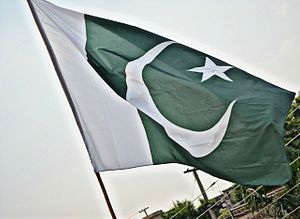In a diplomatic controversy, Pakistan has recalled a junior diplomat from its high commission in Dhaka after allegations by Bangladeshi authorities that the diplomat abetted and financed terrorist activities in Bangladesh. Farina Arshad, a relatively junior diplomat the Pakistani mission in Dhaka, left the country two days after the Bangladeshi government issued an informal request to Pakistan requesting her removal.
Arshad’s recall comes after the Pakistani high commission denied the claims against her. “All diplomatic norms and courtesies have been thrown out to the wind by publishing fabricated details of an imaginary ‘sinister plot’ to destabilise the host country,” the Pakistani high commission had said in a statement last week.
The Daily Star, a Bangladeshi newspaper, noted that authorities were able to make the request after an arrested Jama’atul Mujahideen Bangladesh (JMB) militant, Idris Sheikh, confessed that Arshad had transported him in her car and provided him with 30,000 taka (roughly $380). The militant had additionally spoken with Arshad “several times,” according to the paper.
This incident is the second of its kind this year. Earlier this year, Mohammad Mazhar Khan, an attaché at the Pakistani high commission, was recalled after Bangladeshi intelligence found evidence of links to terror groups in the country. Khan was not a Pakistani diplomat but part of the high commission’s staff, according to a foreign ministry spokesperson. Bangladeshi media reports noted that Khan routed funds to terror groups including Hizb ut-Tahrir, Ansarullah Bangla Team and the Jamaat-e-Islami.
The Arshad and Khan incidents will prove embarrassing for Pakistan, which is accused of sponsoring terrorist activity in the region—most prominently by India. In Bangladesh, the incident comes at a time of heightened national sensitivities about the legacy of the 1971 war of independence and the continued influence of Islamists in the country’s politics.
The origins of Arshad’s ties to JMB remain unknown. The group, founded in 1998, aims to overthrow the Bangladeshi government and install an Islamic state. The group has been responsible for prominent terror attacks against NGOs and a spectacularly coordinated 2005 attack in which militants detonated 500 explosive devices at 300 locations across the country. The 2005 attack resulted in 2 death and 115 injuries and affected nearly every corner of the country.
Later that year, a JMB suicide bomber killed two Bangladeshi judges. After facing trial for the 2005 attacks, the group’s founders, Maulana Abdur Rahman and Shaykh Abdur Rahman were executed. The group’s activity had died down since.
































